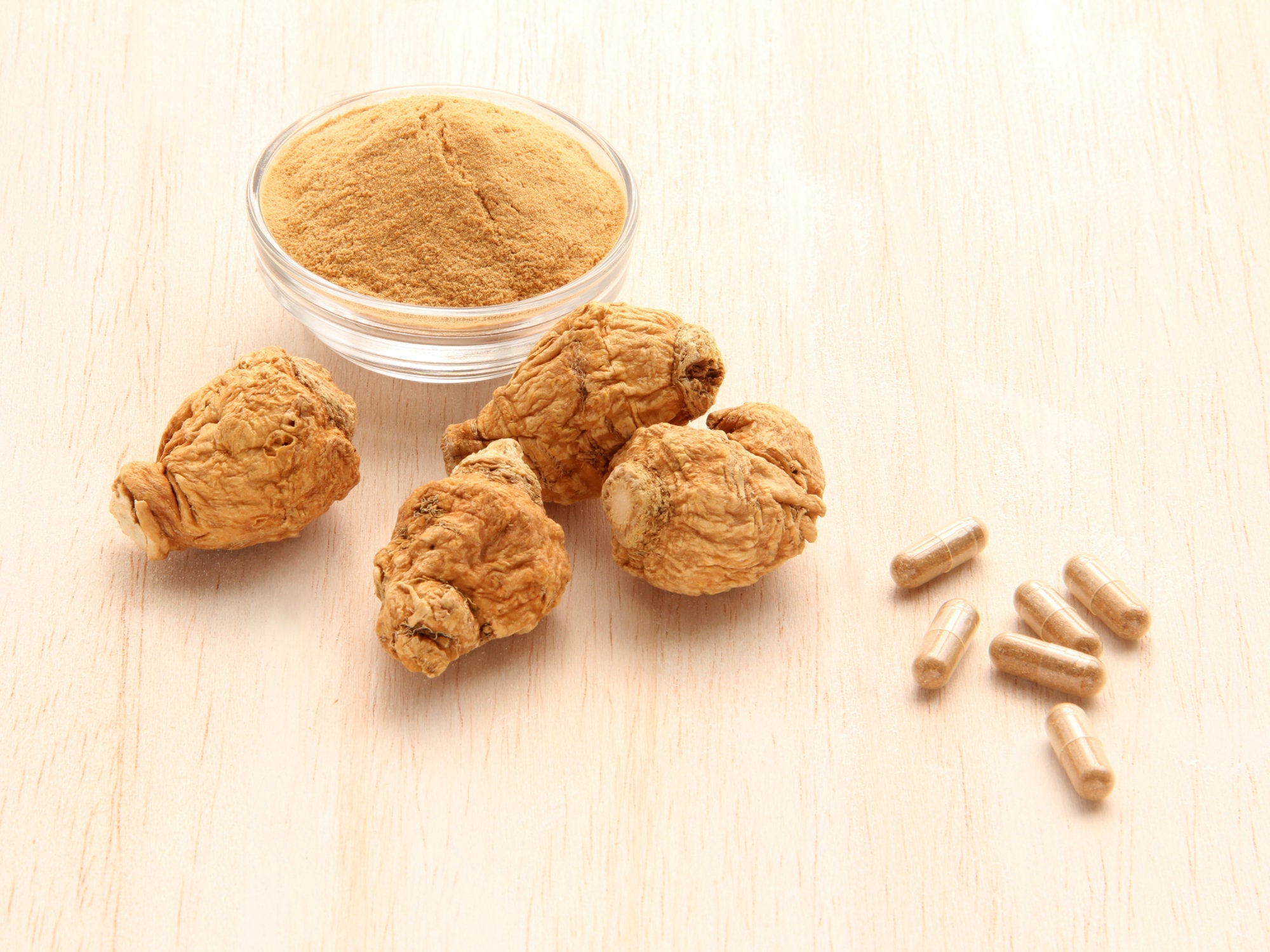Your basket is empty
Already have an account? Log in to check out faster.
Already have an account? Log in to check out faster.

Peruvian Maca is an extraordinary plant with important tonic-adaptogenic properties.
Peruvian maca root can be eaten cooked or boiled. It is often dried in the sun using traditional methods.
A powder is obtained from dried maca which has a very particular and pungent flavour, slightly malty sweetish, oscillates between bitter and spicy, and can be used as a spice to embellish both sweet and savory recipes.
But if you don't like its taste, so particular and strong, it can be easily disguised by mixing maca powder with other ingredients or it can be taken in the form of capsules.
Let's summarize together what Peruvian maca is and how it is best to take it in capsules or powder.
Maca is a plant very similar to turnip, which comes from a plant of the Brassicaceae family, its botanical name is Lepidium meyenii and originates in the Andes.
This small annual herbaceous plant is typical of the Peruvian and Bolivian highlands.
The maca plant is considered perennial, precisely due to the formation of its roots, a rounded tuber with a diameter of approximately 8 cm and 14 cm long, whose color varies from yellow to red.
From its root, which is edible, a powder is obtained which is used and appreciated for its beneficial properties.
Maca contains important nutrients and is increasingly appreciated for its tonic-adaptogenic abilities.
Thanks to its composition, maca is effective as an adaptogenic remedy to improve the body's non-specific resistance in response to external stress stimuli, both physical and psychological.
The maca root would in fact be able to increase our body's ability to adapt to stressful agents.
Furthermore, maca is the subject of numerous studies for its effects on both male and female fertility.
It would be able to reduce the symptoms of menopause in women and also act as a natural aphrodisiac, increasing sexual desire.
In the countries where it is cultivated, in Peru and Bolivia, it is also widely used for "altitude sickness" as it is said to be capable of increasing the oxygen content in the blood, alleviating symptoms related to altitude.
Maca root can be processed in three ways:
Gelatinized Maca powder has numerous advantages, in addition to being easier to digest, it is more concentrated and more soluble.
Finally, this process also has a hygienic value and keeps all the nutritional properties of the food intact.
There is no difference between maca in capsules and powder.
The production process is the same and begins with the collection of this root and subsequent processing until a yellow/beige colored powder is obtained.
The difference between the powder and the capsules is the added step of filling the cellulose capsules with the same gelatinized Maca powder.
So, the only difference is in the way of taking it and the dosage.
The capsules are practical to use as a supplement, the most convenient powder to use as a spice in recipes.
To understand whether it is better to buy maca in capsules or powder, it is important to know how to best use this product.
Organic maca powder can be dissolved in drinks, fruit-based smoothies or smoothies.
It pairs perfectly with fruit juices, chocolate, yogurt, milk and much more.
Generally, the recommended daily dose is approximately 1 teaspoon of Peruvian maca powder.
It can be added as a spice to savory recipes: to season vegetables, roasts and potatoes, in broths or soups, or it can be used in bread and homemade pasta dough.
Finally, it can be used in the preparation of sweet recipes, such as biscuits and cakes.
Organic maca in capsules, however, is an excellent way to take this precious food if you don't like its strong and particular taste.
You can comfortably take 3 maca capsules up to twice a day.
Although maca is considered a safe food, it is preferable to start with a small quantity and increase gradually, in this case you give the body time to get used to it.
Sometimes taking maca powder can cause side effects, especially in cases where the quantities are exceeded or used for long periods.
In fact, Peruvian maca should not be consumed for a long time, but it would be preferable to take a week's break every month of constant intake.
In case of pathologies, pregnancy or breastfeeding it is always necessary to consult a doctor before taking maca.
Some studies on maca and its benefits:
Preparation time: ~15 min
Blend eggs, bananas and maca powder in a blender until smooth. Add 1 tablespoon of coconut oil to a pan over low heat. Then add the desired amount of pancake batter. Cook each side for about 2 minutes (Add more coconut oil, if necessary). Finish with fresh fruit, maple syrup or NaturaleBio Manuka honey.
0 comments